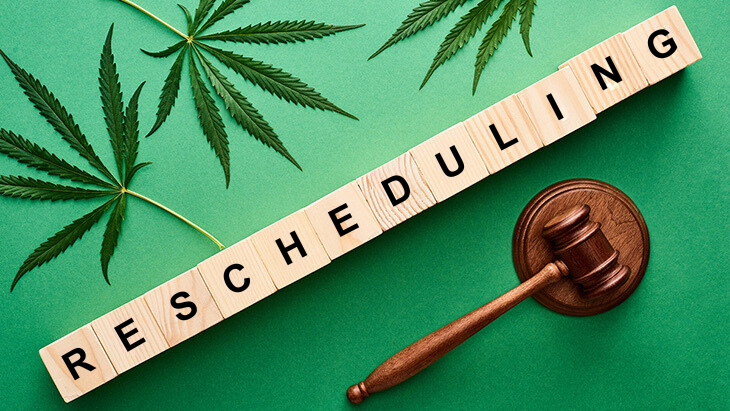Yesterday, NORML filed a Notice of Appearance and Notice of Intent to Participate in the upcoming DEA hearing on marijuana rescheduling, which will take place on December 2.

In its filings, NORML maintained that its “representation of its members and millions of other cannabis consumers, combined with its historical involvement and expertise, makes it uniquely positioned to provide essential testimony in this administrative hearing. The organization satisfies the criteria for ‘associational standing,’ ensuring that the interests and concerns of a significant portion of the public are adequately represented and considered in the decision-making process.”
Founded in 1970, the nonprofit NORML is the nation’s oldest marijuana advocacy group focused on legalizing marijuana and reforming cannabis laws in the United States. Since its founding, NORML “has been a party to virtually every prior administrative petition to remove cannabis from its Schedule I classification under federal law”, according to a press release.
“We believe NORML has well earned a seat at the table, and that it is in the public interest for it to be heard,” the filings conclude.
All filings from those wishing to participate in the hearing will be reviewed by the US Drug Enforcement Administration. Participants will be selected by DEA Administrator Milgram. It remains unknown how many applicants will be chosen.
DEA Administrator Anne Milgram announced the hearing in the August 29th edition of the Federal Register. The purpose of the hearing is so the DEA can “‘receive factual evidence and expert opinion regarding’ whether marijuana should be transferred [from Schedule I] to Schedule III of the list of controlled substances.”
The Biden Administration initiated the regulatory process to review cannabis federal scheduling in late 2022. The Department of Health and Human Services recommended marijuana be moved to Schedule III last August and the Justice Department published a proposed rule to change cannabis’ classification in May.
In its public comments to DEA in July, NORML concurred with views expressed by the Department of Health and Human Services (HHS) that cannabis “has a currently accepted medical use” and that its relatively low abuse potential is inconsistent with the criteria required for substances in either Schedule I or Schedule II.
NORML’s public comments concluded: “The determination by HHS that cannabis use does not possess the same public health burden as does the use of alcohol (unscheduled), tobacco (unscheduled) or other controlled substances currently regulated in lower schedules of the CSA (e.g., benzodiazepines) is consistent with decades of worldwide scientific literature. While HHS ultimately recommends transferring cannabis from Schedule I to Schedule III, NORML wishes to emphasize that these findings similarly provide a factual basis for removing cannabis from the CSA entirely. Although the HHS is not recommending descheduling at this time, NORML asserts that this position is the most appropriate one and that descheduling cannabis should be adopted by future administrations.”







